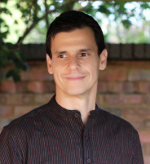The Relevance of Career Success in Personal Fulfilment
Given his passion for science and his devotion to bringing peace and happiness to the world, His Holiness the Dalai Lama, along with the best and brightest scientists, created the Mind and Life Institute to foster collaboration with western science.
A few years ago, the Dalai Lama commissioned a scientific study to a very large group of the most prominent social scientists and physicists, to study the concept of happiness. The questions that drove the project were: What makes us feel happy and fulfilled? How can we attain personal fulfilment? Two years later, the scientists returned with their findings and a happiness formula : H = S + C + V
H – stands for happiness
S – stands for the set point in the brain
C – stands for conditions of living
V – stands for voluntary choices
The variable “S” (set point in the brain) refers to our mechanisms of perception. We all have a semi-fixed place on the happiness spectrum based on our outlook on life. Happier people see the opportunities, where unhappy people see problems depending on how their brain is wired, in other words, how their neural network is configured. The set point determines 50% of our happiness experience on a daily basis.

The variable “C” (conditions of living) refers mainly to career and material success as well as personal wealth. This value in the happiness formula determines about 12% of your daily happiness experience.
The variable “V” refers to the choices that we make on a daily basis. Choices for personal pleasure bring transient happiness, while selfless choices bring inner fulfilment through purpose and meaning. For example, by making other people happy, meaningful relationships bring more permanent happiness. Voluntary choices account for 38% of our happiness.
One of the conclusions of the study on how we can attain personal fulfilment, was that it is fine to have career success and material comforts around you, but that will only account for 12% of your happiness. To really be happy, you need to expand your awareness and overcome your egotistical mind and then choose selfless actions, or ways to be of service to others. This leads to true and lasting happiness and wisdom.
And what about our brain’s set point, which accounts for 50% of the happiness formula – are people that are biologically predisposed to be pessimistic, doomed from the start?
Find the answer in my next article.
César Gamio
Chopra Center Master Educator










